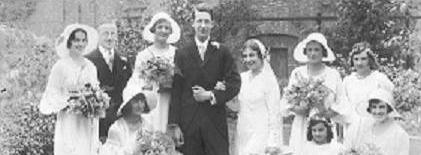 |
| Robert Lowell at the Grolier Poetry Bookshop, 1963. Photo by Elsa Dorfman. |
I met him when I was an undergraduate at Harvard and we were both at Quincy House (in my case, during the years 1959-1962). Although he had a tough-guy reputation as a young man, I found him as frank and diffident in person as he is in his poetry. He told me, as if I could do something about it, that he wanted a faculty position at Harvard. I told my senior tutor, Paul Sigmund, and maybe the message was carried somewhere else, but probably by more than one pigeon. Anyway, the message was received and he taught at Harvard from 1963 to 1970, commuting from his home in New York City.
He was from an old Boston family that produced a former President of Harvard, after whom a house at Harvard was named. His Wikipedia entry has two paragraphs about the lineage of both his parents.
He attended Harvard for only two years. While a student, he had a tough-guy dispute with his father and left home. At the suggestion of Robert Frost, to whom Lowell showed his poetry, he traveled south to the Tennessee home of poet Allen Tate. In a 1961 Paris Review interview with Frederick Seidel, posted on the Poetry Foundation site under Lowell's name, the young Lowell described his arrival as follows:
Mrs. Tate . . . had three guests and her own family, and was doing the cooking and writing a novel. And this young man arrived, quite ardent and eccentric. I think I suggested that maybe I'd stay with them. And they said, "We really haven't any room, you'd have to pitch a tent on the lawn." So I went to Sears Roebuck and got a tent and rigged it on their lawn. The Tates were too polite to tell me that what they'd said had been just a figure of speech. I stayed two months in my tent and ate with the Tates.He married three distinguished women in turn, Jean Stafford, 1940-1948; Elizabeth Hardwick (1949-1972), and Lady Caroline Blackwood (1972-1977). The first two marriages ended in divorce, the third with his death.
He began his poetry career in classical poetry form, emulating John Milton, writing in the third person with tradition rhyme and meters. By 1959, however, with his collection Life Studies, he was writing free verse with personal references - what is called now confessional poetry, inspiring Lowell's one-time students Sylvia Plath (1932-1963), Anne Sexton (1928-1974) and W. D. Snodgrass (1926-2009). Snodgrass was an early practitioner of confessional poetry and influenced his mentor. Sexton and Plath committed suicide, suggesting that confessional poetry can be a risky line of work.
Lowell suffered from what is today labeled bipolar disorder. He was for some time in the care of mental institutions. His good friends and correspondents included Elizabeth Bishop. Their 30-year correspondence is published as Words in Air (Farrar Straus & Giroux).

No comments:
Post a Comment